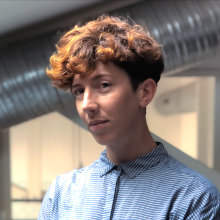PregDaT
Pregnancy Dating Challenges:
Technologies and Unequal Geographies of Abortion and Childbirth Care
Project
ERC Starting Grant-funded PregDaT - “Pregnancy Dating Challenges: Technologies and Unequal Geographies of Abortion and Childbirth Care” project aims at exploring the sociotechnical and political components of pregnancy and reproductive time by focusing on the investigation of the process of gestational age assessment in four different European countries.
Pregnancy dating, or the assessment of the duration of the gestation, is considered the most important step in the management of any pregnancy for obstetric and neonatal care. It is on the estimated starting date of the pregnancy that the whole chain of care (e.g. prenatal screening, childbirth plans) is established and access to a variety of critical pregnancy, childbirth and abortion options are regulated. Although considered a standard procedure, pregnancy dating varies greatly in accuracy and methods, and across services and countries, and depends on technologies, resources and skills of those involved. In this process, pregnant people's embodied knowledge may be disregarded as unreliable. Despite bearing major and life-changing consequences, pregnancy dating remains largely unquestioned in the social sciences and in medical and public health literature. This has profound effects on how pregnancy has been theorised and empirically studied as well as on legal provisions and clinical practices.
The project aims to transform existing paradigms of understanding and studying pregnancy and reproduction by unpacking the black box of pregnancy dating, exposing its socio-technical and political components of pregnancy and reproductive time, and exploring whether and how these generate unequal access to abortion and childbirth.
In particular it has the ambition to answer the following research questions:
- What understandings of pregnancy and pregnant bodies underpin and inform gestational age assessment practices and how do technologies of assessment emerge from and participate in developing such understandings?
- What kind of subjectivities and conceptions of time and temporalities emerge from the process of measuring and dating pregnancy and in what way do these relate to people’s experience of pregnancy and care?
- How do different technologies, protocols and practices of assessment contribute to affect access to reproductive care for different groups of pregnant people and in different locations?
A multidisciplinary team composed of anthropologists, sociologists, and legal scholars employs qualitative methods from STS, anthropology, feminist legal studies, public health studies and visual design to investigate the process and experience of pregnancy dating in Italy, France, Greece and the United Kingdom, focusing on both metropolitan areas and peripheral locations.
PregDaT seeks to reshape scholarly understanding of pregnancy and pregnant subjectivities and temporalities, while intervening in the policies, practices, and narratives of pregnancy and abortion care.
Team
Giulia Zanini
Principal Investigator, PhD
Giulia Zanini is Associate Professor of Anthropology at Ca’ Foscari University of Venice, and has a special interest and expertise in the fields of reproduction, health and gender. After having obtained a PhD at the European University Institute (EUI), she has been affiliated to different universities in Europe, participating in several cooperative and international projects on reproductive health and intentions at the University of the Aegean, at the University of Barcelona and at the Queen Mary University of London. She has also obtained a Piscopia- Marie Curie at the University of Padova. She has conducted research and published on reproductive health; assisted reproduction and transnational flows in Mediterranean countries; barriers to access to abortion and abortion travels; and reproductive trajectories, including permanent childlessness in Italy.
Alessandra Brigo
Knowledge and policy coordinator, PhD
Alessandra Brigo holds a PhD in Public Health at the Institute of Social Medicine (Brazil) and in Social and Cultural Anthropology at the University of Milan-Bicocca (Italy) with a thesis on reproductive choices and self-managed abortion during the COVID 19 pandemic and the Zika epidemic in Brazil. She is an associate researcher at the Latin American Center on Sexuality and Human Rights, (CLAM) and has been affiliated to several universities, like New York University and City University of London. She has worked for institutions and NGOs (such as International Planned Parenthood Federation, Plan International, ALDA and others) as a programme manager and expert on SRHR narratives and policies, capacity building and communities engagement methodologies. As an activist and advocate, she is involved with transfeminist prochoice movements in Europe and LatinAmerica.
Manon Vialle
Research fellow, PhD
Manon Vialle is a sociologist specialising in infertility and parenthood issues at the intersection of health, gender and age. She wrote her doctoral thesis at the Ecole des Hautes Études en Sciences Sociales (EHESS) in France on the treatment of age-related female infertility in medically assisted reproduction (MAR). Her post-doctoral research continues to focus on the treatment and experiences of infertility: in the context of adolescent and young adult oncology, in the context of MAR pathways interruption during the COVID-19 pandemic, and from the point of view of the family and MAR technologies representations among young Europeans from 8 countries. Her research focuses on temporality dimension both in the definition of medico-legal thresholds for care and in the trajectories of the people concerned.
Cecilia Bona
Project manager
Cecilia Bona works as a Project Manager in the Research Office of the Department of Philosophy and Cultural Heritage at Ca' Foscari University of Venice. She is supporting the implementation of EU-funded projects through budget monitoring and financial report preparation, ensuring adherence to regulations. Previously, she served as an administrative assistant at the Public Relations and Student Services (Enrolment Unit) Office. Cecilia holds a Master's Degree in Philosophical Sciences (October 2022) and a Bachelor's Degree in Philosophy (July 2020) from Ca’ Foscari University. During her studies, she actively participated as a student representative at the Department Council and the Students-Professors Joint Committee.
Work with us
Some positions will be opened during the life span of the project (September 2023 - August 2028). Expressions of interest are welcome at any time: please send an e-mail if you have any questions.



